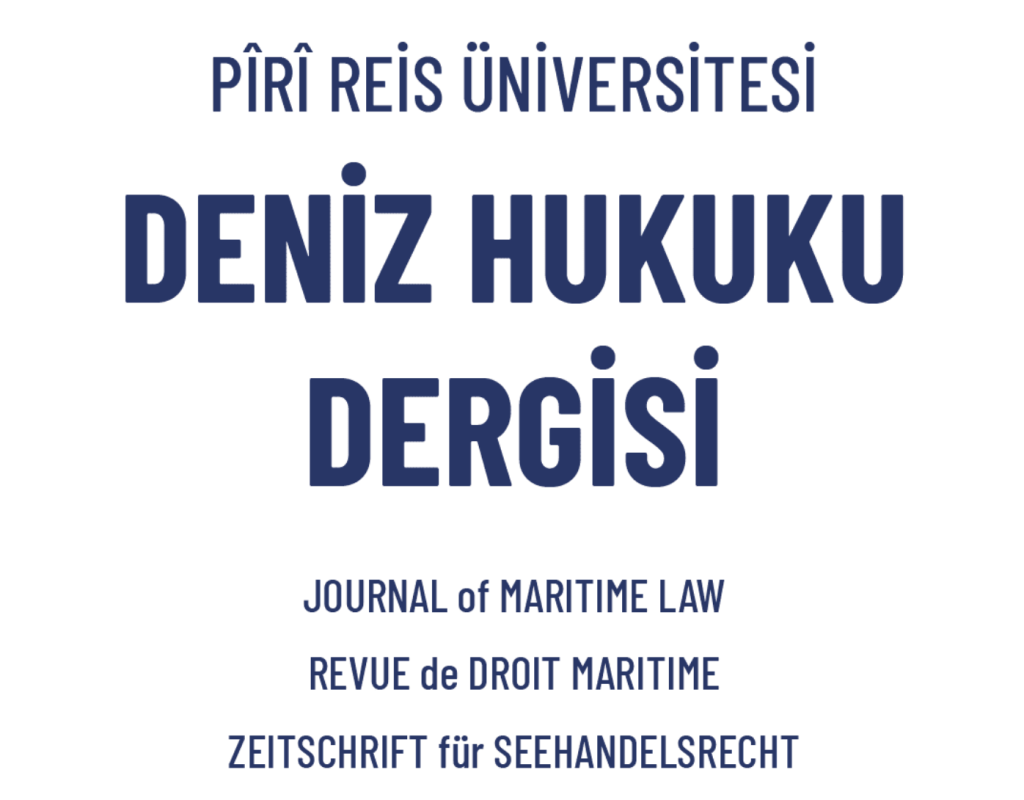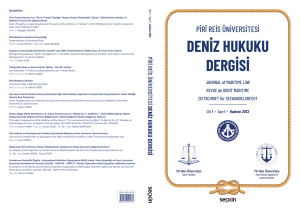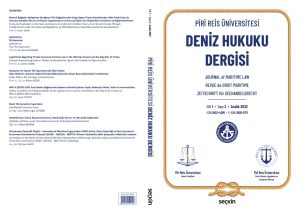
Purpose and Scope
At our Faculty, established in 2017, educational activities are carried out with the aim of training legal professionals who will serve in judicial and administrative positions, who will work in all branches of law both nationally and internationally, whether as practitioners or academics, capable of conducting scientific research, respectful of our national values, committed to Atatürk’s principles and reforms, modern, and equipped with creative thinking and reasoning abilities.
In line with this goal, besides fundamental legal education, both public and private law are taught at an advanced level, and legal professionals are trained to serve successfully in all branches of law, nationally and internationally.
Additionally, considering our country’s significant needs in the field of maritime and maritime law due to its geographical location, and given the University’s close relationship with the maritime sector, as well as its status as an educational institution with Turkey’s strongest maritime experts, and its membership in the IAMU (International Association of Maritime Universities) and its previous presidency of BSAMI (Black Sea Association of Maritime Institutions), special importance is given to Maritime Law.
It is indisputable that, within “Public Maritime Law,” subjects such as territorial waters, exclusive economic zones, continental shelves, the legal status of the Turkish Straits, and issues such as the prevention of terrorism and piracy at sea, hold significant importance for Turkey.
Moreover, it is also well known that the “Private Maritime Law,” which deals with various issues encountered by the Turkish merchant fleet — a vital contributor to the national economy — is of great value to Turkey.
Taking these reasons into account, our educational activities aim to train expert legal professionals in the fields of Public and Private Maritime Law, capable of protecting and defending Turkey’s maritime interests and those of the Turkish maritime sector, both domestically and internationally, and in all countries where Turkish ships operate.
Within this framework, to contribute to the development of “Turkish Maritime Law,” Pîrî Reis University Maritime Law Practice and Research Center was established in 2018 and continues its work.
Additionally, to identify issues concerning Turkey and Turkish maritime matters at international maritime organizations, and to offer scientific opinions to official authorities before these organizations’ sessions, as well as to assist legal scholars who wish to conduct academic studies on new topics, a separate initiative was launched at our Faculty. For this purpose, two faculty members from Public Law and Private Law fields and two research assistants were appointed to monitor CMI (Comité Maritime International) and IMO-LEG-MEPC (International Maritime Organization Legal Committee & Marine Environment Protection Committee) studies. Informative meetings regarding these topics are held regularly.
Our first Master’s program was also launched in the field of Maritime Law and continues its educational activities.
In addition to our Master’s program, an application has been submitted to the Higher Education Council (YÖK) to open a Maritime Law Doctorate Program.
Meanwhile, within the scope of International Cooperation Studies, our membership in ELFA (European Law Faculties Association) continues, and collaborations with the University of Swansea, The Institute of International Shipping & Trade Law are ongoing. An application for membership has also been submitted to ELI (European Law Institute).
Alongside the activities mentioned above, and considering our country’s maritime-related interests, the peer-reviewed Pîrî Reis University Maritime Law Journal will be published twice a year, featuring qualified articles.
In this way, it will be possible to inform our esteemed colleagues about developments in maritime law and create a platform where national and international maritime law issues can be discussed and solutions proposed.
Therefore, we believe that the contribution of our esteemed colleagues and academics, by submitting articles and sharing their opinions and analyses on Turkish and foreign court decisions, will help strengthen the journal’s connection with professionals. This will provide a new opportunity to achieve our aim of contributing to the development of Turkish maritime law.
We hope the journal will be beneficial to all our colleagues and to our country.
Tag
Publisher
On behalf of Pîrî Reis University
Rector Prof. Dr. Nafiz ARICA
Editors
Prof. Dr. Ceyda SÜRAL EFEÇINAR
(Pîrî Reis University)
Editorial Assistants
Assoc. Prof. Dr. Fevzi TOPSOY
(Pîrî Reis University)
Assoc. Prof. Dr. Başak BAŞOĞLU KAPANCI
(Pîrî Reis University)
REPORTERS
Research Assistant Ümran AKCAN
(Pîrî Reis University)
Research Assistant Onur Doğan YÖRÜK
(Pîrî Reis University)
Research Assistant Eftal GÜREL
(Pîrî Reis University)
LANGUAGE EDITORS
French: Prof. Dr. Samim ÜNAN
(Pîrî Reis University)
German: Assoc. Prof. Dr. Kübra YETİŞ ŞAMLI
(Istanbul University)
English: Assoc. Prof. Dr. Başak BAŞOĞLU KAPANCI
(Pîrî Reis University)
EDITORIAL BOARD
Prof. Dr. Sezer ILGIN
(Pîrî Reis University)
Prof. Dr. Samim ÜNAN
(Pîrî Reis University)
Assoc. Prof. Dr. Hulki CİHAN
(Pîrî Reis University)
Research Assistant Nil İrem SARAY
(Pîrî Reis University)
Research Assistant Şeyma KUŞ
(Pîrî Reis University)
Research Assistant İclal Nihal BARAÇ EVCİ
(Pîrî Reis University)
Research Assistant Muhammet İsmet YAVUZ
(Pîrî Reis University)
Page and Cover Design
Emre KIZMAZ
ADVISORY BOARD
Prof. Dr. Rayegan KENDER
(Istanbul University Faculty of Law – Retired Faculty Member)
Prof. Dr. Haluk KABAALİOĞLU
(Ada Kent University Faculty of Law)
Prof. Dr. Barış SOYER
(Swansea University, The Institute of International Shipping and Trade Law)
Prof. Dr. Richard WILLIAMS
(Swansea University, The Institute of International Shipping and Trade Law)
Professor Sabih ARKAN
(Atılım University Faculty of Law)
Contact Address
Postane Mah. Eflatun Sk. No: 8 Tuzla / Istanbul
Tel: 0216 581 00 50
Fax: 0216 581 00 51
Email: denizhukukudergisi@pirireis.edu.tr
Publisher
Seçkin Yayıncılık A.Ş. (Certificate No: 45644) Mustafa Kemal Mah. 2158 Sok. No: 13 Çankaya / ANKARA
Tel: 0312 435 30 30
Fax: 0312 435 24 72
Printing
Vadi Grafik Ltd. Şti. (Certificate No: 47479) İvedik Organised Industrial Zone 1420 Cad. No: 58/1
Yenimahalle / ANKARA
Tel: 0312 395 85 71
Place of Publication | Year
Ankara | June 2022
Publication Frequency
6 months | June-December
Publication Type
National | Periodical
ISSN 2822-4205
E-ISSN 2822-5171
Publication Principles
Pîrî Reis University Maritime Law Journal
Publication Principles
The Pîrî Reis University Journal of Maritime Law is a peer-reviewed national academic journal. It is published twice a year, in June and December. The journal primarily includes studies in Maritime Law, Maritime Commercial Law, and Insurance Law, as well as in related fields.
Articles submitted for publication must comply with the following writing and publication guidelines:
The submission deadline is April 1 for the June issue and October 1 for the December issue. Articles submitted after these dates will be evaluated for subsequent issues.
Articles submitted to the journal must not have been previously published or submitted for publication elsewhere. Upon acceptance for publication, all publication rights (both print and electronic) belong to Pîrî Reis University. The articles cannot be published elsewhere without the permission of the University. Authors are considered to have transferred their copyright to the University and will not be paid any royalties. Authors accept this condition by submitting a signed copyright transfer agreement along with their articles.
The opinions expressed in the published articles belong to the authors. The Editorial Board assumes no responsibility for the views expressed in the articles.
Articles submitted to the journal must comply with international scientific ethical standards. Additionally, a Turnitin similarity report must be submitted with the article, and the similarity index should not exceed 10%.
In the preliminary review by the Editorial Board, articles that clearly violate the publication principles or scientific ethical standards are returned to the author for necessary corrections before being sent to referees. Articles found to comply with the publication principles and the similarity threshold will be submitted to at least two referees for review. Based on the referees’ reports, the article may be accepted, revised, or rejected; the author will be informed as soon as possible.
Articles must be submitted to denizhukukudergisi@pru.edu.tr in Word format, along with the Turnitin similarity report. The submitted manuscript should not contain any information revealing the identity of the author. In the email, the author should provide their full name, academic title (if any), institution, contact information, and ORCID researcher ID.
The journal’s publication languages are Turkish, English, French, and German. In addition to peer-reviewed articles, the journal may also include case commentaries, book reviews, and other similar content. The acceptance of such content and articles written in languages other than the specified publication languages is at the discretion of the Editorial Board.
Writing Rules
Writing Guidelines
PÎRÎ REİS UNIVERSITY
MARITIME LAW JOURNAL
WRITING GUIDELINES
- Articles should be no less than 3,000 words and no more than 12,000 words, including references. The title of the article should be written in Times New Roman font size 12, in all capital letters, in both Turkish and English. At the beginning of the article, a short abstract of no more than 250 words and 5 keywords must be added to the text in both Turkish and English.
- The text should be written in Times New Roman font, size 12, using upright and normal letters. Footnotes should be written in Times New Roman font, size 10, using upright and normal letters. Quotations, whether verbatim or paraphrased, should be indicated in quotation marks and italicised. Bold type is used for headings, and italics are used for foreign language expressions and proper names. A single character space is left after commas, full stops and other punctuation marks. When abbreviations are used in the text, the name or heading to be abbreviated must be used without abbreviation and with the abbreviation indicated in brackets when it is first used in the text.
- Headings within the text should be formatted as follows:
I. BOLD AND ALL CAPITAL LETTERS
A. Bold and Only First Letters Capitalised
1- Bold and Only First Letters Capitalised
a- Bold and Only First Letters Capitalised
aa- Bold and Only First Letters Capitalised
4. Presentation in the bibliography: Works used in the text are listed alphabetically by surname. Separate sections may be created for decisions and internet sources.
5.Book: Author SURNAME (Capital letters, bold), Name (First letter capitalised, bold), Title of work (Italics), Number of editions, Publisher, Place of publication, Year of publication. (normal)
Example: ÇAĞA, Tahir, Maritime Trade Law- I, 3rd edition, Faculties Publishing House, Istanbul 1973.
Example: ÇAĞA Tahir / KENDER Rayegan, Maritime Trade Law I Introduction – Ship – Owner and Captain, Revised 16th edition, On İki Levha, Istanbul, 2010.
Example: ÜNAN Samim (Editor), Some Current Issues in Insurance Law, Personal Data – Credit-Related Insurance – Compulsory Traffic Insurance, 1st edition, On İki Levha, Istanbul, 2017.
2. For Master’s or Doctoral theses: Author SURNAME (Capitalised, bold) Name (First letter capitalised, bold), Title of work (Italic), Thesis information, Location, University and Institute Information, Year. (normal)
3. ARKAN, Sabih, The Liability of the Carrier in Land Transport of Goods, Doctoral Thesis, Institute for Banking and Commercial Law Research, Ankara 1982
Article: Author SURNAME (Capitalised, bold) Name (First letter capitalised, bold), ‘Article title’ (In quotation marks, italic), Title of work (Normal), volume/year number, edition number, publication date, page range of the article.
Example: ATAMER, Kerim, ‘Passenger Transport Contracts by Sea in the 2002 Athens Convention and the Draft Turkish Commercial Code’, XXIV Banking and Commercial Law Journal 3, 101-213.
4.Decision: Institution issuing the decision, date of decision, case number, decision number and source where the decision can be accessed.
5.Internet sources: The full address and date of last access must be specified.
6.Presentation in footnotes: The first reference to a work in the footnotes must be written in the same way as the works listed in the bibliography. Footnote presentations are as follows.
7.Book/thesis/article: Only the author’s surname in bold and the page number are shown in the footnote. If there are two authors, both surnames are used. If there are more than two authors, the first author’s surname is followed by ‘et al.’. When referring to multiple works by the same author, the author’s surname, a meaningful abbreviation consistent with the title of the work, and the page number should be indicated.
8.GÜNAY, Ship Creditor’s Right, p. 32.
2.Decision: The institution issuing the decision, the date of the decision, the case number, the decision number, and the source where the decision can be accessed.
3.Internet sources: The full address and date of last access must be specified.
Peer Review Process
Peer Review Process
Articles submitted to the journal must not have been previously published or submitted for publication elsewhere. Once an article is accepted for publication, all publishing rights belong to Piri Reis University; it cannot be published elsewhere without the permission of Piri Reis University.
Articles that have undergone an initial evaluation by the editorial board and are found not to comply with the Maritime Law Journal’s publication guidelines will be returned to the author for revision in accordance with those guidelines before being sent for peer review.
Articles that pass the initial editorial evaluation, do not exceed the similarity index threshold specified in the publication guidelines, and comply with the Maritime Law Journal’s editorial standards are sent to two referees. In selecting referees, the author’s academic title and the referees’ fields of expertise are taken into consideration. The editor or associate editor ensures that each article submitted for publication undergoes a fair and double-blind peer review process. Referee evaluations must be objective. During the review process, referees are expected to evaluate the article by considering the following points:
-
Is the work original?
-
What is your opinion on the contribution of the work to its field?
-
Is the article in compliance with the rules of language, expression, and writing style?
-
Is there consistency between the title and the content of the article?
-
Is the article suitable for publication in terms of clarity of expression, fluency, and structure (systematic flow)?
-
Is the article suitable for scientific evaluation based on how the topic is presented, the research hypotheses and objectives, and the conclusions reached?
-
Are the sources used in the study relevant, current, and sufficient?
-
If the article includes numerical data, are the statistical data compiled and used adequately and appropriately for the article’s objectives?
-
If the article is in a foreign language, please evaluate its language proficiency.
-
Does the article adhere to scientific and academic (ethical) principles and proper citation methods?
-
Are the abstracts (in both English and Turkish) and keywords consistent with and sufficient for the content of the article?
-
Overall, does the article comply with the Maritime Law Journal’s editorial guidelines?
Based on the referee reports (accept, revise, or reject):
-
If both reports are positive (accept), the article is accepted for publication.
-
If one report is an acceptance and the other requests revisions, or if both request revisions, the author will be asked to revise the article accordingly.
-
If both reports recommend rejection, the article is rejected.
-
If one report recommends rejection and the other requests revision, the article is considered rejected.
-
If one report recommends acceptance and the other rejection, a third referee may be appointed, or the editorial board and editor may make a final decision without assigning another referee.
The author is informed of the decision as soon as possible. If revisions are requested, the author must make the necessary changes and resubmit the article within seven business days from the notification date. If the revised article is not submitted within this timeframe without a valid reason, it is considered withdrawn. If there is a valid reason, additional time may be granted, and in such a case, the article will be considered for the next issue.
Referees who wish to re-evaluate the revised manuscript submitted by the authors are expected to submit their final decision within three business days as a general rule.
All correspondence with referees and authors is conducted via the email address denizhukukudergisi@pirireis.edu.tr and is kept confidential
Journal Contact
6st issue
- PDF İncele
- E-Dergi
- Satın Al





